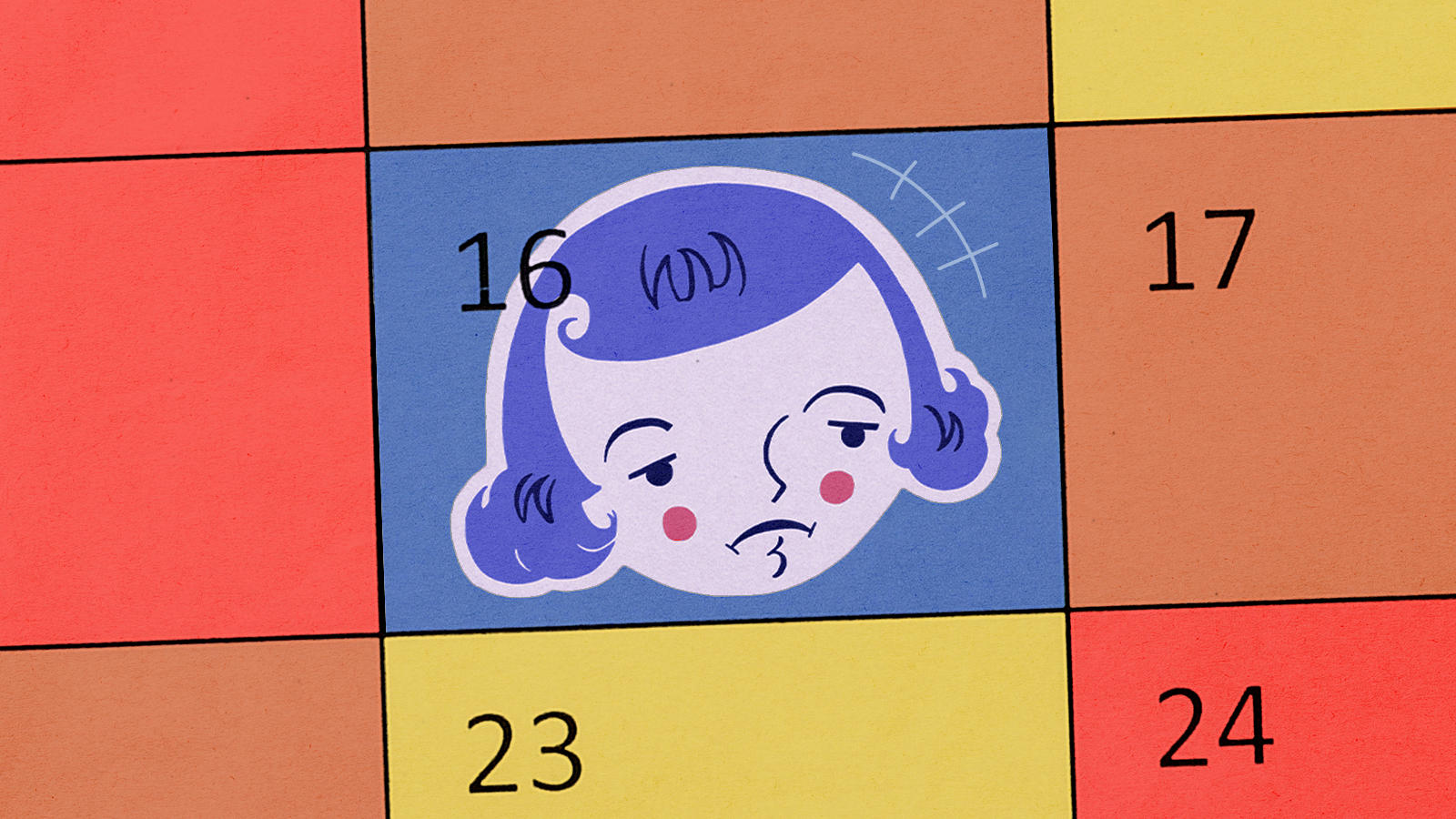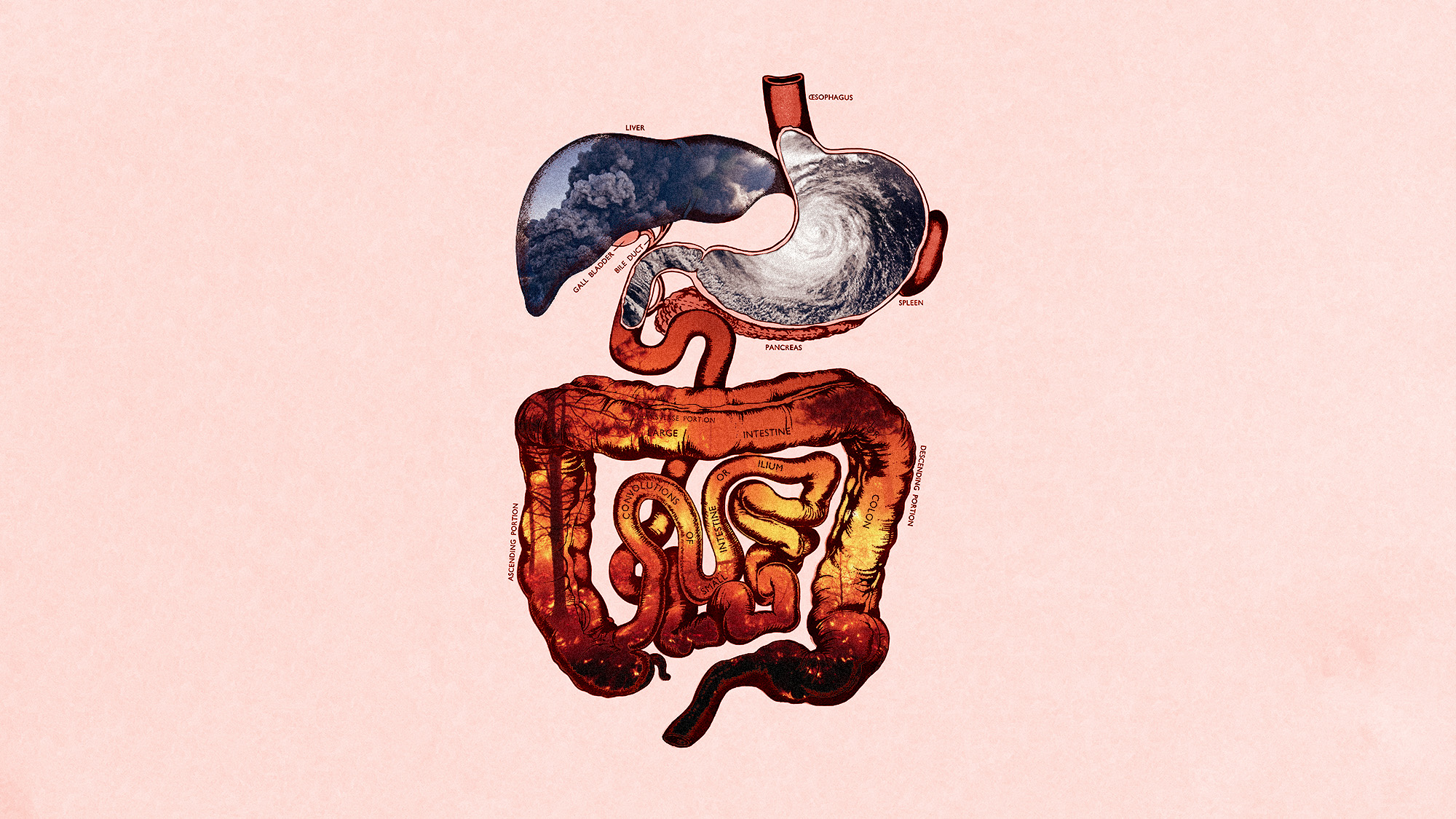What is Blue Monday?
The most depressing day of the year might not be all it's been made out to be


A free daily email with the biggest news stories of the day – and the best features from TheWeek.com
You are now subscribed
Your newsletter sign-up was successful
Rumor has it that the most depressing day of the year, known as Blue Monday, occurs on the third Monday in January. Is the world actually experiencing depression simultaneously, or is it pseudoscience used to prey on consumers dealing with the 'winter blues'? Here's everything you need to know:
What is Blue Monday?
Blue Monday is a concept conceived by psychologist Cliff Arnall in 2005. The now-defunct U.K. travel company Sky Travel hired Arnall to help figure out when people are most likely to book vacations. Arnall, working as a part-time tutor at Cardiff University's Centre for Lifelong Learning at the time, determined that people are likely to travel when they're feeling down. Hence, he set out to calculate the most depressing day of the year. He devised a formula that consists of seven variables: the weather, debt, monthly salary, time elapsed since Christmas and failed New Year's resolutions, motivational levels, and the need to take action.
Sky Travel circulated a press release for the first Blue Monday, Jan. 24, 2005, encouraging people to hop on their winter travel deals to beat the blues, and the concept took on a life of its own. Since then, various companies have used Blue Monday as part of their PR campaigns. While many critics have questioned the scientific accuracy of Blue Monday, the concept has evolved into a way to label the dark days of January and the gloomy mood that seems to linger after the holidays are over.
The Week
Escape your echo chamber. Get the facts behind the news, plus analysis from multiple perspectives.

Sign up for The Week's Free Newsletters
From our morning news briefing to a weekly Good News Newsletter, get the best of The Week delivered directly to your inbox.
From our morning news briefing to a weekly Good News Newsletter, get the best of The Week delivered directly to your inbox.
When is Blue Monday 2023?
Based on Arnall's formula, Blue Monday falls every year on the third Monday of January. That will make the supposed most depressing day of 2023 Monday, Jan. 16, or Martin Luther King Jr. Day if you're in the United States. According to the formula, this will be the day when people are most likely to be depressed due to the bleak winter weather, post-holiday season blues, and guilt over abandoning New Year's resolutions.
Is it really the most depressing day of the year?
Probably, not. The concept has been debunked as pseudoscience, and some experts say it creates more harm than good. Arnall has even taken to speaking out against the idea in the years since he started it. He went as far as to claim to be part of an "activist group" called Stop Blue Monday. However, that turned out to be another PR campaign with Virgin Atlantic and Virgin Holidays for winter vacations in the Canary Islands.
A 2021 report by CNN pointed out that though "Arnall's formula looks the part," it "can't be adequately assessed or verified." None of the variables he included in his formula can be measured against each other using the same units.
"For example, there's no way to measure the average number of days since people slipped up on their New Year's resolution. And January's weather varies among different states, countries, and continents," CNN declared. Numerous experts have echoed those sentiments over the years. Dean Burnett, a neuroscientist who has spoken out against Blue Monday in The Guardian numerous times, has described the work as "farcical" with "nonsensical measurements." Burnett also considered the trend "disrespectful to those who suffer from genuine depression, suggesting that it is temporary, minor, and experienced by everyone, rather than what may be a chronic and incapacitating condition."
A free daily email with the biggest news stories of the day – and the best features from TheWeek.com
Mental health practitioners have warned that attempting to associate depression with one day a year based on arbitrary calculations could trivialize the experiences of people dealing with diagnosed clinical conditions, such as seasonal affective disorder (SAD), colloquially known as seasonal depression. Symptoms of SAD include persistent daily depression, irritability, fatigue, loss of appetite, and suicidal ideation, among other things, per the National Institute of Mental Health.
"There is generally more sadness in the winter time and January is not uncommon at all for overall more sadness among folks," said Dr. Ravi Shah, a psychiatrist at Columbia University's Irving Medical Center, told CNN. "So rather than dial in to one specific day, I think the more interesting question is what it is about the winter that affects our mood."
Theara Coleman has worked as a staff writer at The Week since September 2022. She frequently writes about technology, education, literature and general news. She was previously a contributing writer and assistant editor at Honeysuckle Magazine, where she covered racial politics and cannabis industry news.
-
 The ‘ravenous’ demand for Cornish minerals
The ‘ravenous’ demand for Cornish mineralsUnder the Radar Growing need for critical minerals to power tech has intensified ‘appetite’ for lithium, which could be a ‘huge boon’ for local economy
-
 Why are election experts taking Trump’s midterm threats seriously?
Why are election experts taking Trump’s midterm threats seriously?IN THE SPOTLIGHT As the president muses about polling place deployments and a centralized electoral system aimed at one-party control, lawmakers are taking this administration at its word
-
 ‘Restaurateurs have become millionaires’
‘Restaurateurs have become millionaires’Instant Opinion Opinion, comment and editorials of the day
-
 Stopping GLP-1s raises complicated questions for pregnancy
Stopping GLP-1s raises complicated questions for pregnancyThe Explainer Stopping the medication could be risky during pregnancy, but there is more to the story to be uncovered
-
 Tips for surviving loneliness during the holiday season — with or without people
Tips for surviving loneliness during the holiday season — with or without peoplethe week recommends Solitude is different from loneliness
-
 More women are using more testosterone despite limited research
More women are using more testosterone despite limited researchThe explainer There is no FDA-approved testosterone product for women
-
 Climate change is getting under our skin
Climate change is getting under our skinUnder the radar Skin conditions are worsening because of warming temperatures
-
 Food may contribute more to obesity than exercise
Food may contribute more to obesity than exerciseUnder the radar The devil's in the diet
-
 Is that the buzzing sound of climate change worsening sleep apnea?
Is that the buzzing sound of climate change worsening sleep apnea?Under the radar Catching diseases, not those ever-essential Zzs
-
 Deadly fungus tied to a pharaoh's tomb may help fight cancer
Deadly fungus tied to a pharaoh's tomb may help fight cancerUnder the radar A once fearsome curse could be a blessing
-
 Climate change can impact our gut health
Climate change can impact our gut healthUnder the radar The gastrointestinal system is being gutted
